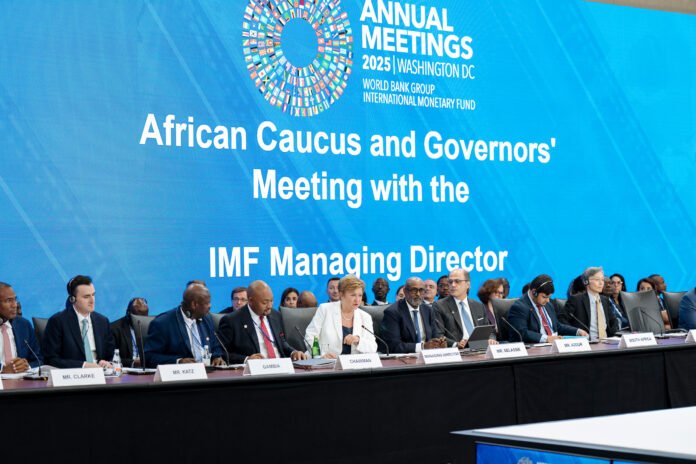MOGADIHU, Somalia (Horn Life) – The Government of Somalia is turning toward investment-led growth as a central pillar of its economic strategy. After years of crisis management and aid dependency, the country is now focusing on long-term investments in infrastructure, human capital, private sector development, and climate-resilient growth. This strategic shift reflects Somalia’s ambition to build a sustainable, self-reliant economy.
At the global level, Somalia continues to advocate for inclusive and investment-friendly financing from international institutions such as the World Bank and the IMF. The government argues that fragile states must have access to capital and fair financing — not just humanitarian aid — if they are to achieve lasting stability and growth.
Building an Investment-Driven Economy
Somalia’s delegation at the 2025 IMF/World Bank Spring Meetings highlighted the country’s reform path, focusing on better alignment between project pipelines and national priorities such as infrastructure, education, health, and social protection. The government is also strengthening key institutions, including the Central Bank of Somalia and systems for public financial management, to enhance accountability and investor confidence.
Having reached the Completion Point under the HIPC initiative and secured major debt relief, Somalia is now in a transition phase. The shift to investment-led growth aims to move the country from aid dependency toward sustainable, market-driven progress.
With a young population, a vast coastline, a large diaspora, and a strategic location linking Africa and the Middle East, Somalia holds enormous untapped potential. Realizing this potential, however, depends on continued investment in infrastructure, human capital, and private-sector growth.
To accelerate progress, the government is working with the International Finance Corporation (IFC) to improve the business climate, governance, and regulatory frameworks. These reforms target key sectors such as energy, ICT, and industrial infrastructure, laying the foundation for stronger private-sector engagement.
Climate-Smart and Inclusive Growth
Somalia’s economy remains highly vulnerable to climate shocks, including recurrent droughts and floods. Recognizing this, the government — with support from the World Bank — is linking investment strategies to climate resilience. The focus is on green energy, climate-smart agriculture, and micro-finance programs that empower vulnerable communities.
In July 2024, the World Bank approved a $125 million IDA grant aimed at boosting revenue mobilization, debt management, and private-sector investment while promoting climate-resilient growth. A year later, in August 2025, a second $125 million Development Policy Financing (DPF) package was approved to deepen reforms in renewable energy, micro-finance, fisheries, and broadband expansion — key areas expected to attract private investment and create jobs.
Through these initiatives, Somalia is positioning itself as a reform-driven economy that prioritizes resilience, inclusion, and sustainability.
Challenges and the Road Ahead
Despite strong reform momentum, Somalia’s investment-led growth strategy faces several challenges. Governance and security constraints continue to affect investor confidence, while limited institutional capacity can slow implementation. Additionally, the private sector remains hesitant due to weak financial systems, regulatory uncertainty, and infrastructure gaps.
Climate vulnerability is another major concern. Unless investments incorporate resilience measures, future returns may be undermined by droughts or floods. Ensuring that growth is inclusive — reaching youth, women, and rural populations — is equally essential to avoid deepening inequality.
Coordination among government agencies, donors, and reform partners will also be critical to maintain momentum and align priorities. Sustaining this drive over time will determine whether Somalia can successfully transition from an aid-dependent economy to one powered by private investment and innovation.
Conclusion: From Aid to Opportunity
Somalia’s advocacy at the World Bank and IMF meetings reflects a bold and strategic shift — from receiving aid toward driving investment-led growth. By aligning its economic agenda with global partners, reforming institutions, and creating a more predictable business environment, Somalia is positioning itself to unlock its vast potential.
While challenges remain, the direction is clear: Somalia is moving from dependency to development, from fragility to opportunity. The success of this transition will depend on continued reforms, effective governance, climate resilience, and the ability to translate investment into real results — jobs, productivity, and inclusive growth.
Related Article
IMF, Somalia Agree on $30 Million Credit Facility to Support Reforms

